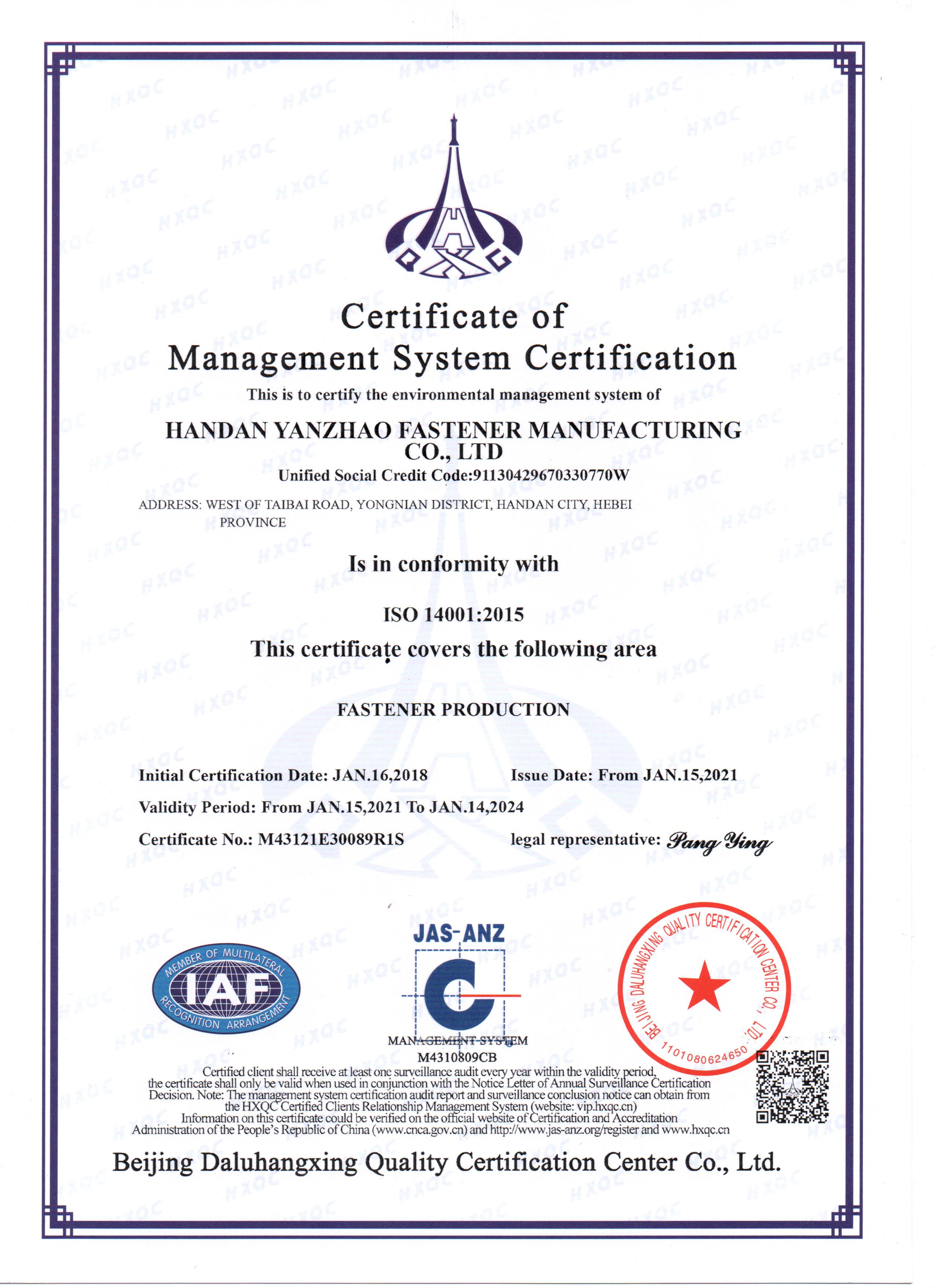Exploring Sources for Benchmade Bugout Replacement Screws and Their Manufacturing Processes
Aug . 14, 2024 11:06 Back to list
Exploring Sources for Benchmade Bugout Replacement Screws and Their Manufacturing Processes
Exploring Benchmade Bugout Screws and Manufacturing
The Benchmade Bugout knife has become a popular choice among outdoor enthusiasts, survivalists, and everyday carry (EDC) aficionados. Renowned for its lightweight design, durable construction, and precision engineering, the Bugout represents the pinnacle of what a modern folding knife should be. One of the often-overlooked aspects of this iconic tool is the critical role that various screws play in its assembly and functionality.
The Importance of Screws in the Bugout Design
Screws in the Benchmade Bugout have more than just a fastening role; they are integral to the knife's overall performance and durability. The Bugout features an aluminum or nylon handle, depending on the model, and the screws used in its construction must withstand considerable forces while maintaining the integrity of the assembly. High-quality screws ensure that the knife components remain securely attached, allowing users to rely on the tool during intense activities.
The Bugout incorporates several types of screws—most notably, Torx screws. The Torx design offers a superior grip for drivers compared to traditional slotted or Phillips screws. This design minimizes the risk of stripping, which can occur under high torque situations, ensuring a longer lifespan for both the screws and the knife itself.
Manufacturing and Sourcing of Screws
Most of Benchmade's components, including screws, are sourced from specialized manufacturers that adhere to strict quality control standards. These factories are often located in the United States, allowing the company to maintain its commitment to American craftsmanship. The sourcing process involves not just acquiring raw materials, but also ensuring that the manufacturing processes employed by these factories meet the rigorous specifications required by Benchmade.
benchmade bugout screws factories

Screw manufacturers utilize advanced machinery and technology to produce screws that are not only strong but also lightweight, which aligns with the Bugout’s design philosophy. The precision of the machining process allows for tight tolerances, minimizing any chance of components shifting or loosening during usage.
The Role of Quality Control
Quality control is paramount, especially in the production of screws for a knife that is meant to perform under pressurized conditions. Benchmade invests in robust quality assurance processes, inspecting the screws for defects such as surface imperfections, dimensional inaccuracies, and material integrity. The scrutiny applied to each batch of screws ensures that only the best components make it into the final assembly of the Bugout.
Once production is complete, Benchmade often conducts additional testing on the assembled knives, including stress tests that evaluate how well the screws hold under various conditions. This thorough approach gives consumers confidence that they are investing in a product that is designed to last and perform to high standards.
Conclusion
The Benchmade Bugout is more than the sum of its parts; every element, including the screws, plays a vital role in its overall functionality and reliability. The attention to detail in sourcing, manufacturing, and quality control of these screws highlights the commitment Benchmade has to its customers. When using a Benchmade Bugout, owners can appreciate not only the sleek design and cutting performance but also the robust engineering that goes into making each component work seamlessly together. This dedication to quality ensures that the Bugout remains a top choice for those in need of a dependable and high-performance folding knife.
Latest news
-
Premium Wood Screws for Flooring - Reliable Wood Floor Screws Company & Suppliers
NewsJun.24,2025
-
High-Quality Cabinet Bolts – Reliable Factory, Trusted Company & Leading Suppliers
NewsJun.10,2025
-
Dragon Bolts UNF Wholesale – Top OSRS Dragon Bolts UNF Manufacturer & Exporter
NewsJun.10,2025
-
Premium Wind Lock Washers - Secure Anti-Vibration Solution
NewsJun.10,2025
-
Stainless Steel Socket Head Cap Screws High Strength & Corrosion-Resistant
NewsJun.10,2025
-
Shake Proof Washers Durable Anti-Vibration Locking Solutions
NewsJun.09,2025
